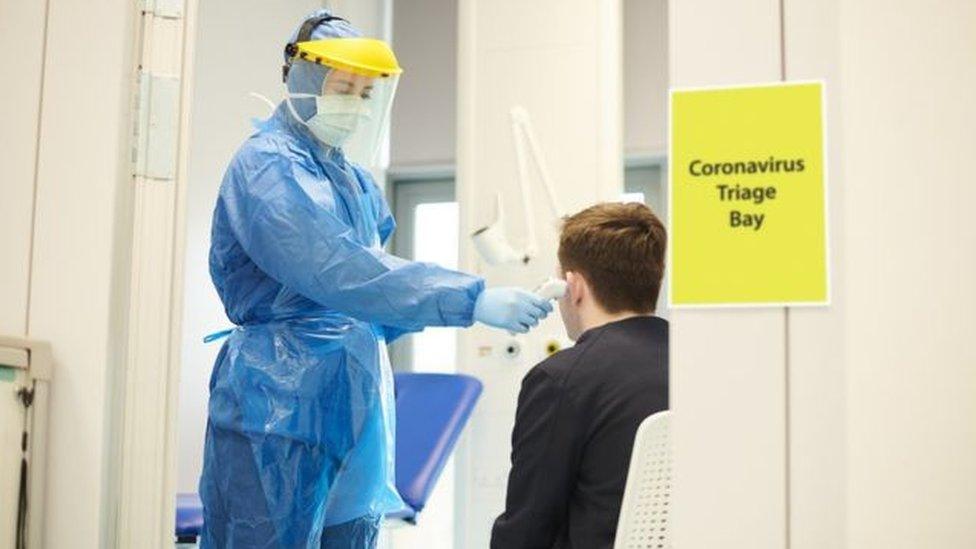Coronavirus: 'Institutional racism left minorities exposed'
- Published
Ghulam Abbas was working in the weeks before he caught Covid-19
Institutional racism may have contributed to the disproportionate impact of Covid-19 on ethnic minorities in Wales, a top judge has claimed.
Judge Ray Singh, who led the Welsh government's response to the issue, also said lives could have been saved if an online risk-assessment had been made available sooner.
The Trades Union Congress (TUC) has called for a public inquiry.
The Welsh government said it was trying to tackle structural racism.
In the last 20 years, at least 10 UK-wide reports have highlighted health inequalities in Wales, research by BBC Wales Investigates has found.
Analysis of official data shows people from ethnic minority backgrounds in Wales are more likely than white people to live in areas where deprivation has worsened since 2011.
According to ONS statistics, external, between March and the end of June, the Covid-19 mortality rate in the most-deprived fifth of areas in Wales was nearly twice as high as in the least-deprived areas.
Ethnic minority workers are also more likely to have zero-hours contracts or work for agencies, external, meaning they are under pressure to keep working despite the danger posed by the virus.
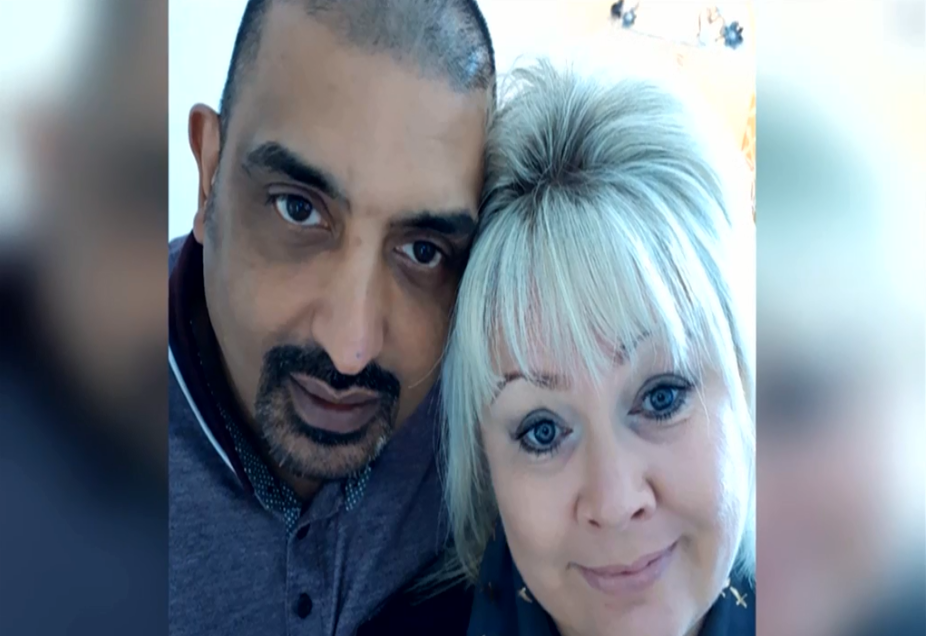
Nicola Mincher told her partner Raza Ghulam she did not want him going into work, but he said he could not afford time off
'It was the last time I spoke to him'
In March, after Covid-19 started to spread, Raza Ghulam, 54, was working as a warehouse manager and looking after his parents on his days off.
Raza's partner, Nicola Mincher, 49, from Newport, told him she did not want him going into work, but he said he could not afford time off.
They both fell ill just before lockdown started and, within two days, Nicola had to call an ambulance because Raza was having trouble breathing.
"As he was leaving he said 'people don't come home from this'," said Nicola. "I said 'don't talk like that'. I gave him a kiss.
"It's the last time I spoke to him."
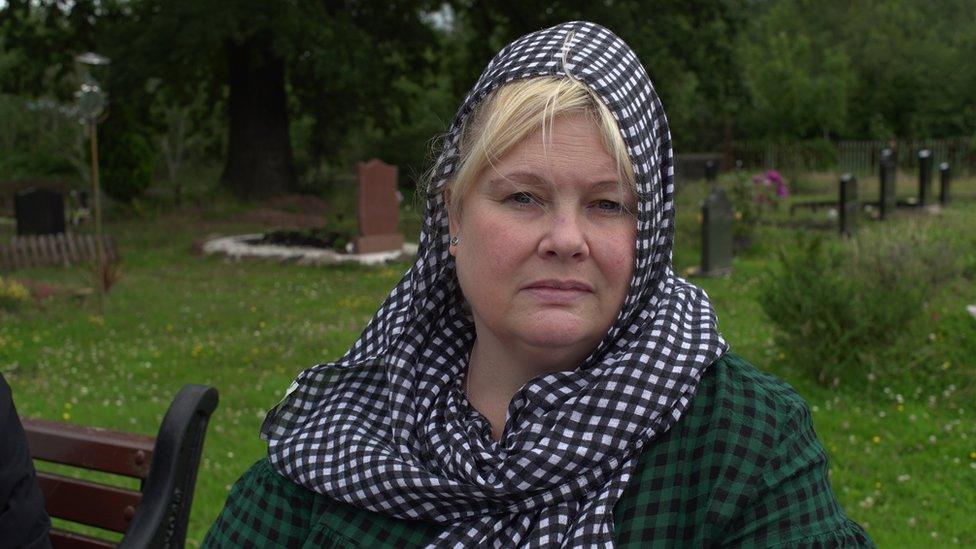
Nicola Mincher says her world fell apart when her partner died
In hospital, Raza tested positive for coronavirus and was put on a ventilator.
Then his brother Ghulam Abbas, 59, a taxi driver from Newport, also caught Covid-19 and the brothers both ended up in the Royal Gwent Hospital's intensive care ward.
On 22 April, Nicola was called into the hospital to see Raza.
'My world collapsed'
"I gave him a kiss on the cheek and I was holding his hands with his prayer beads and within five minutes they said his heart stopped," she said.
"They said 'he's gone' and my world just collapsed."
Raza's brother Ghulam died 12 hours later.
His wife, Shamim Abbas, 60, said: "We loved him so much. My daughters, to them, he wasn't their dad, he was their hero.
"We've always worked, every day, and I said to him, 'it's time to have some time for me and you', and that's what we were planning. But God has other plans."
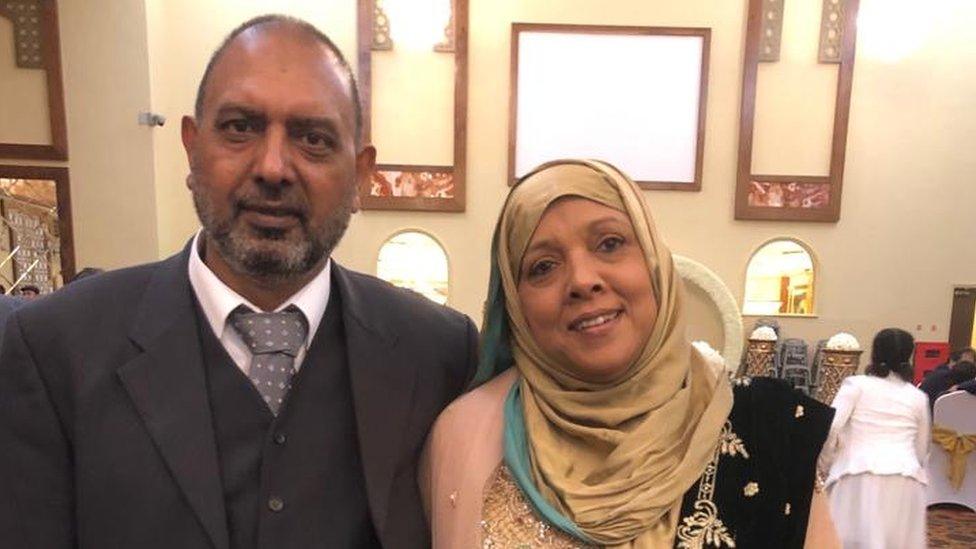
Ghulam Abbas, pictured with his wife Shamim, ended up in intensive care at the same time as his brother
Claimed by Covid at 40
In the first wave of Covid-19, 16 health and social care workers in Wales died. Seven were Filipino.
In April, healthcare support worker Julius Sana went into hospital suffering with a fever. A day later, on his daughter Princess' fifth birthday, he was put on a ventilator.
He had accompanied a patient into hospital who later tested positive for coronavirus. Julius was, according to his sister Jovelyn Villareal, 44, proud of his job.
"He was a person that didn't want people to think he's lazy," she said.
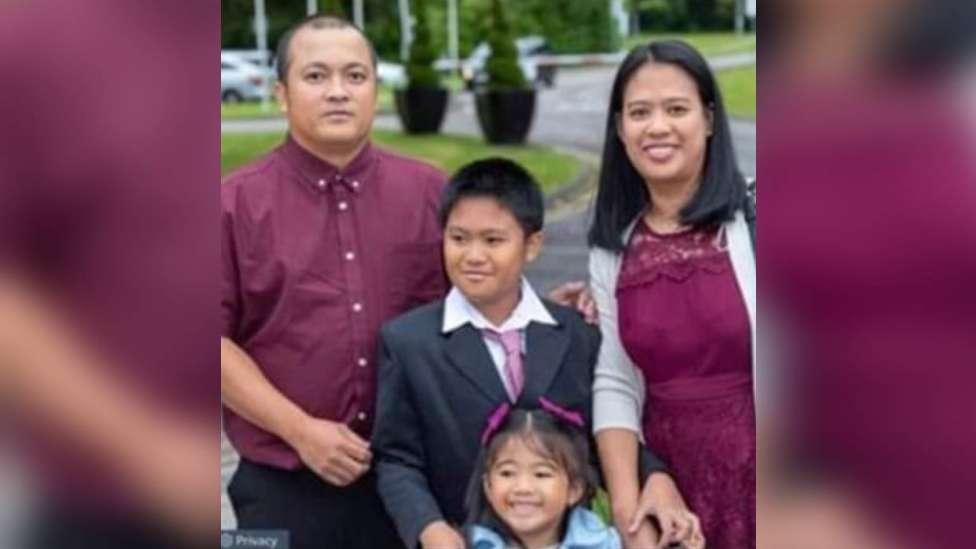
Julius Sana, pictured with his wife Maricar, son Marc and daughter Princess, was intubated for 18 days
Julius had diabetes, a risk factor in the pandemic, and although he had some personal protective equipment (PPE), it was fairly basic, in line with government guidance at the time.
"In the beginning we were asking - is this enough?" said Jovelyn.
"We saw on the TV, in places like China or in the Philippines, they were wearing full PPE like they were astronauts."
Julius was intubated for 18 days. Then his wife Maricar, 40, was called to say he was having a cardiac arrest.
The 40 year-old died within 10 minutes.
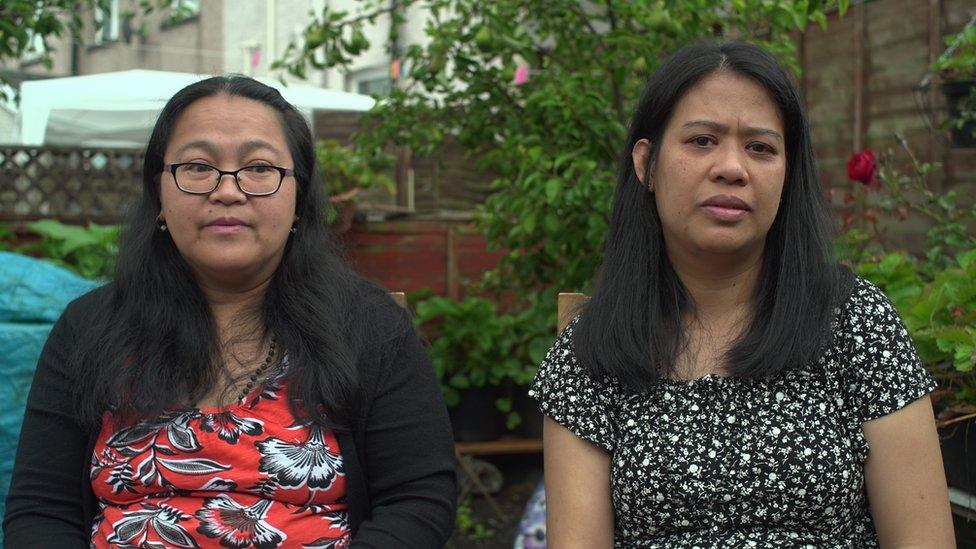
Julius Sana's sister Jovelyn Villareal, pictured with his wife Maricar, has questioned whether he had adequate PPE
People 'had to work'
Stories like those of Raza, Ghulam and Julius are familiar to Shavanah Taj, of the TUC.
"Many people said openly, right from the start, 'we are really scared. When we see the images on the TV screens and on our media, we know that we are disproportionately impacted. But when I've got to make a choice between putting food on the table and paying my bills - what do you think I'm going to do?'."
She said many workers from ethnic minority backgrounds also have visa requirements to work a certain number of hours or are in a position where they have to take on extra shifts.
Ms Taj said she wanted a public inquiry into why ethnic minorities were disproportionately affected.
"Many people have lost loved ones, friends and colleagues. We need to know whether that could have been avoided," she said.
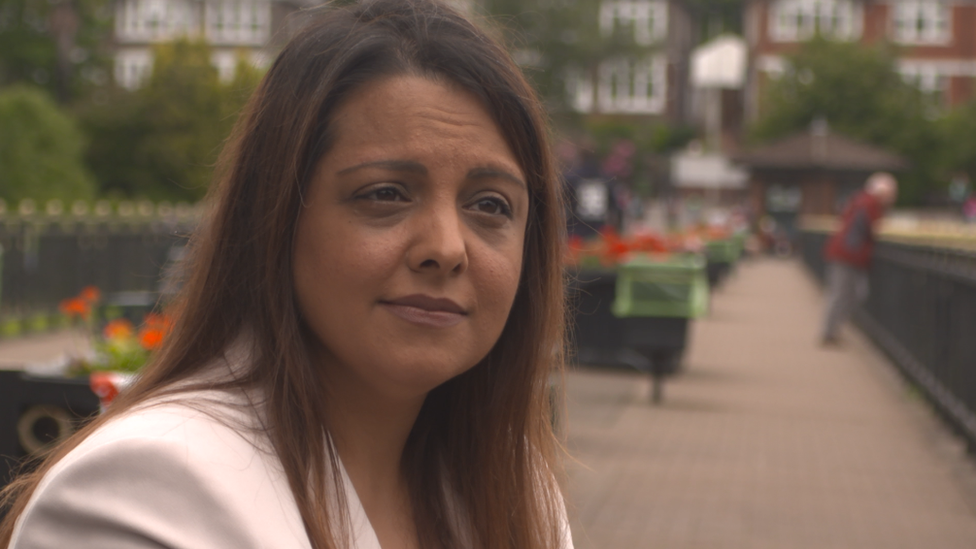
Shavanah Taj from the TUC wants a public inquiry into whether ethnic minorities could have been better protected
Poverty as well as virus risk
Across the board, the statistics illustrate how vulnerable some ethnic minorities were.
One third of medical and dental staff in Wales are from BAME backgrounds.
Poverty has also hit some communities harder as businesses closed in the pandemic.
Pakistani, black African and black Caribbean men are more likely to work in industries that shut during lockdown, external.
Bangladeshi men are four times more likely to be in these industries than white men.
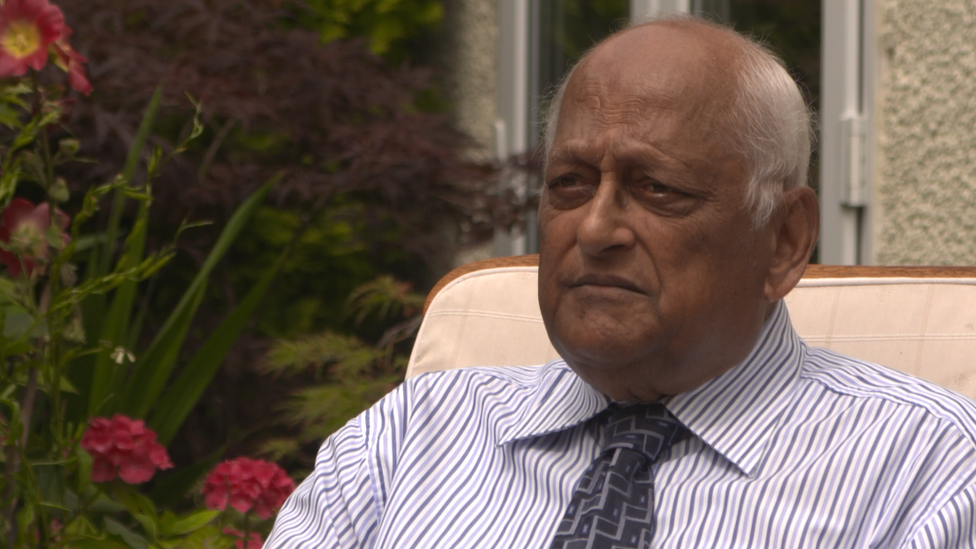
Judge Ray Singh says Covid-19 has exposed "embedded racism" in Wales
Lives 'could have been saved'
In April, the Welsh government set up an advisory group to look at why ethnic minorities were at risk as the virus spread.
It was headed by Judge Singh who, early in the process, oversaw the development of an online risk assessment, external which takes into account risk factors linked to coronavirus, such as ethnicity, gender and illness.
He believes it could have made a difference had it been available early on.
"It would have helped a lot. So many of those people may still be alive today," he said.
"The embedded racism is being exposed here," he added.
"And we need to act upon it now, as otherwise it will be too late."
'We can't be complacent'
In the last two decades at least 10 UK-wide reports have highlighted health inequalities in Wales, some pointing to the impact on ethnic minorities.
Equalities Minister Jane Hutt said: "We didn't know what the impact of Covid-19 would be as a virus, but we knew about socio-economic inequalities.
"We've got to accept that there are structural inequalities."
The report also highlighted the lack of ethnic minority representation in decision-making roles.
Ms Hutt said, just before lockdown, the government had launched an equality and diversity inclusion strategy for public appointments.
Asked if she would support a public inquiry, she said: "I think we should implement the action plan that we're delivering on the race equality strategy.
"We've got to accept that there are structural inequalities and there's racism. There's absolutely no way that we should be either complacent or think this doesn't apply to us in Wales."
BBC Wales Investigates Under the Skin of Covid-19 on Monday, 3 August at 20:30 GMT on BBC One Wales.
- Published30 July 2020
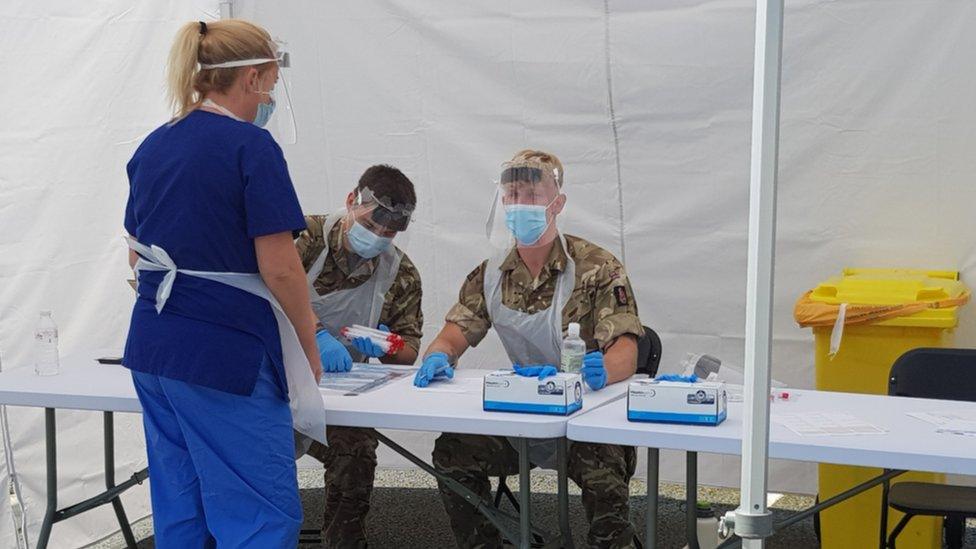
- Published30 July 2020
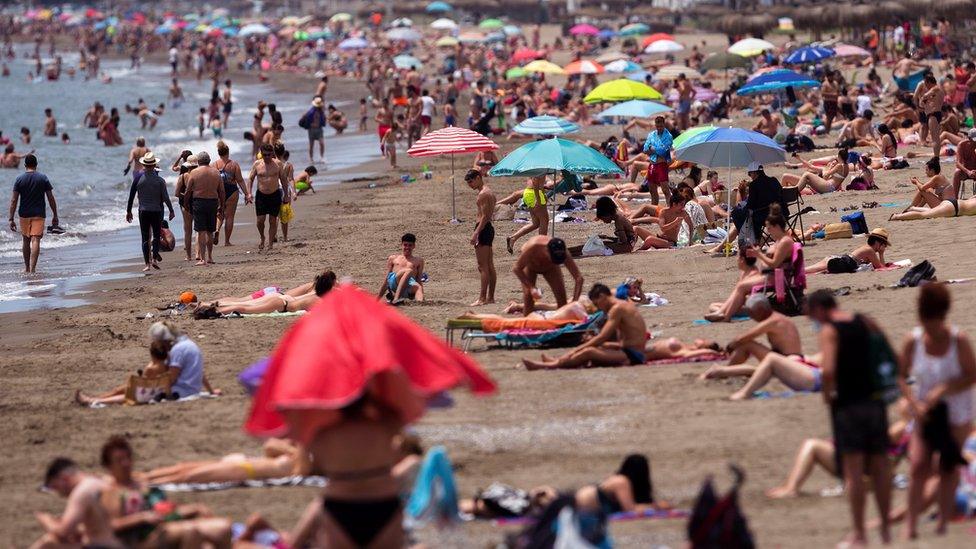
- Published23 July 2020
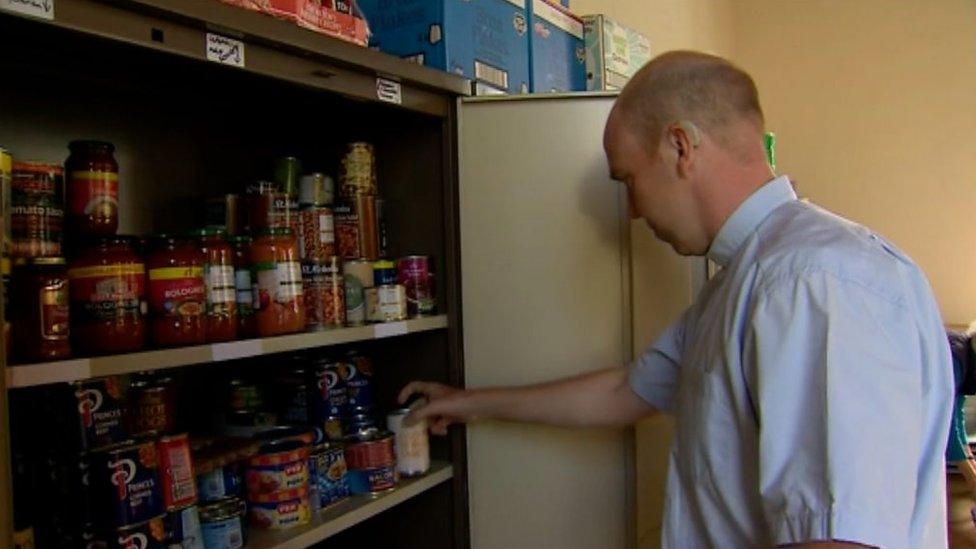
- Published17 July 2020

- Published19 July 2020
